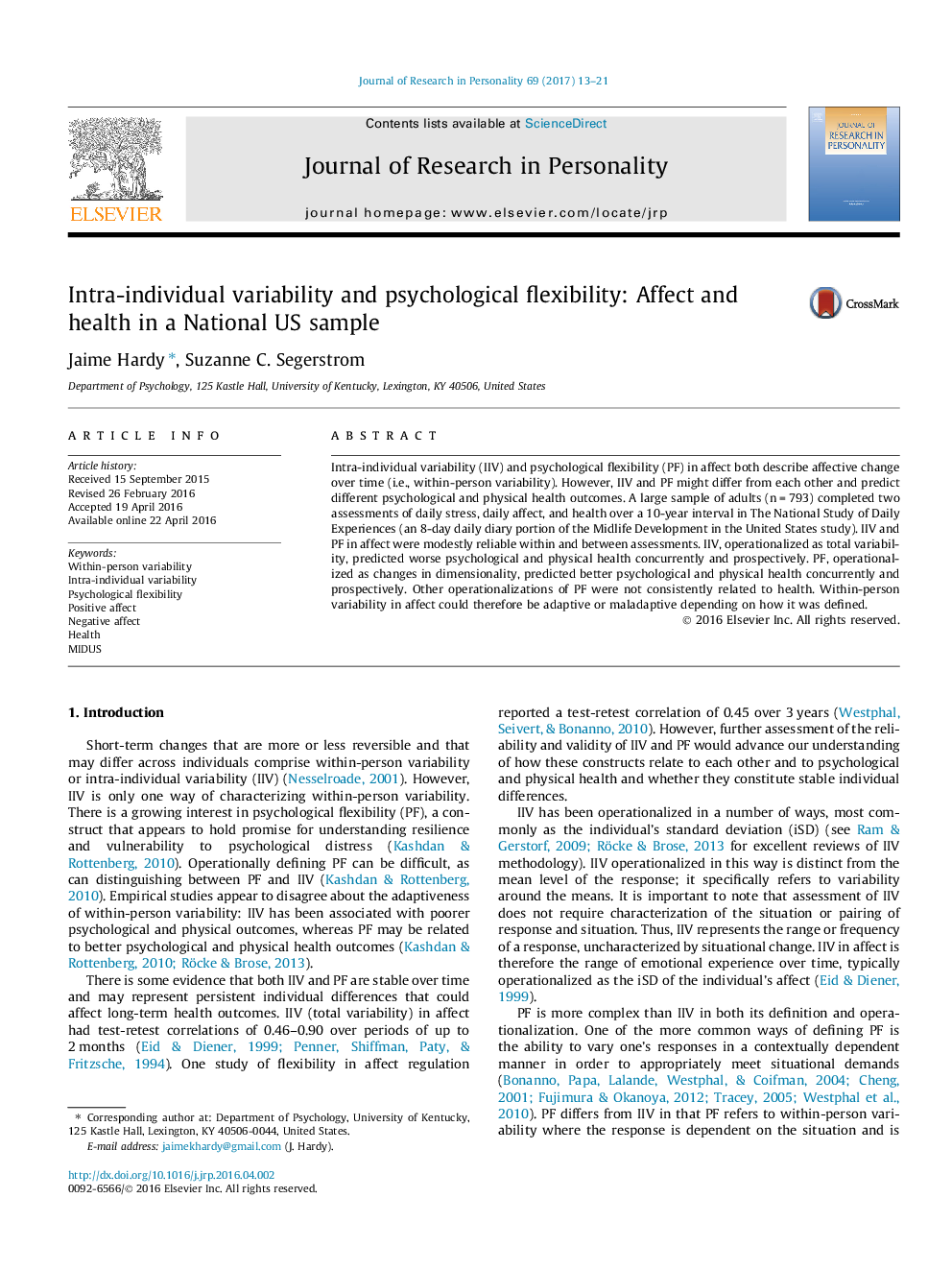| Article ID | Journal | Published Year | Pages | File Type |
|---|---|---|---|---|
| 5046228 | Journal of Research in Personality | 2017 | 9 Pages |
â¢Total affect variability predicted worse health concurrently.â¢Total affect variability predicted worse health 10 years later.â¢Flexibility in affect dimensionality predicted better health concurrently.â¢Flexibility in affect dimensionality predicted better health 10 years later.â¢Other operationalizations of flexibility were not consistently related to health.
Intra-individual variability (IIV) and psychological flexibility (PF) in affect both describe affective change over time (i.e., within-person variability). However, IIV and PF might differ from each other and predict different psychological and physical health outcomes. A large sample of adults (n = 793) completed two assessments of daily stress, daily affect, and health over a 10-year interval in The National Study of Daily Experiences (an 8-day daily diary portion of the Midlife Development in the United States study). IIV and PF in affect were modestly reliable within and between assessments. IIV, operationalized as total variability, predicted worse psychological and physical health concurrently and prospectively. PF, operationalized as changes in dimensionality, predicted better psychological and physical health concurrently and prospectively. Other operationalizations of PF were not consistently related to health. Within-person variability in affect could therefore be adaptive or maladaptive depending on how it was defined.
